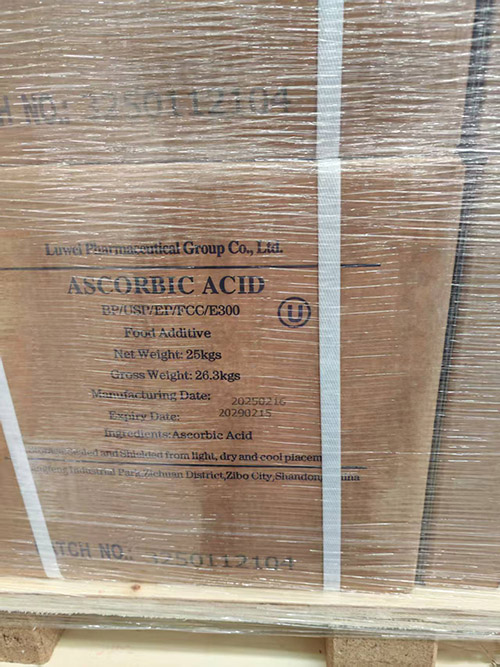



Vitamin C, also known as ascorbic acid, is a water-soluble vitamin essential for human health. Naturally found in fruits and vegetables, it is widely used in various industrial applications, particularly in the food and pharmaceutical sectors. Its antioxidant properties and vital role in collagen synthesis make it indispensable in human nutrition and medical formulations.
Nutritional Fortification
Vitamin C is commonly added to beverages, cereals, infant formula, and processed foods to enhance nutritional value. It helps prevent deficiency-related diseases such as scurvy and supports immune health.
Antioxidant Function
Ascorbic acid acts as a powerful antioxidant, inhibiting oxidation reactions that lead to food spoilage, color loss, and rancidity. This is particularly useful in:
Fruit juices and soft drinks
Canned fruits and vegetables
Meat products (as a color stabilizer and nitrite reducer)
Bakery items (to improve dough strength)
Preservative Agent
Its ability to maintain freshness and extend shelf life makes vitamin C a valuable natural preservative in clean-label and organic food products.
Processing Aid
In flour treatment, ascorbic acid helps strengthen gluten, improve loaf volume, and enhance texture in bread-making.
Nutritional Supplements
Vitamin C is one of the most popular over-the-counter dietary supplements. Available in forms such as tablets, capsules, powders, and chewables, it helps:
Boost immune function
Accelerate wound healing
Act as a coenzyme in metabolic reactions
Injection and IV Therapy
Pharmaceutical-grade ascorbic acid is used in intravenous (IV) and injectable forms for patients with severe deficiencies or increased demand due to illness.
Cold and Flu Remedies
Vitamin C is frequently included in medications and formulations aimed at relieving cold symptoms, supporting recovery, and enhancing resistance to infections.
Skin Care and Dermatology
Ascorbic acid is used in topical treatments and cosmetic pharmaceuticals due to its role in collagen formation, skin brightening, and anti-aging effects.
Adjunct Therapy in Chronic Diseases
Some clinical studies support its use as an antioxidant therapy in cancer, cardiovascular diseases, and other oxidative stress-related conditions.
Supports immune system function
Promotes collagen production for healthy skin and tissues
Enhances iron absorption from plant-based foods
Neutralizes free radicals and reduces oxidative damage
Safe for daily consumption within recommended limits
Food Grade Vitamin C: For use in food processing, nutrition fortification, and beverages
Pharmaceutical Grade Vitamin C: Compliant with USP/EP/BP standards, suitable for supplements and drug formulations
Packaging: Typically in 25kg cartons or fiber drums with inner PE bags; custom packaging available on request
Shelf Life: 24–36 months in cool, dry storage conditions
As a reliable exporter of food and pharma-grade Vitamin C, we provide:
High purity (≥ 99.0%) ascorbic acid from GMP-certified manufacturers
Full documentation support: COA, MSDS, TDS
OEM and private label services
Fast global delivery with competitive pricing
Responsive technical and after-sales support
Vitamin C plays a crucial role in both nutrition and health care. Its extensive use in food preservation, functional beverages, pharmaceuticals, and dietary supplements makes it a versatile and valuable ingredient across industries. With growing demand for natural antioxidants and immunity-enhancing nutrients, ascorbic acid remains a top choice for manufacturers and consumers worldwide.
Back to top